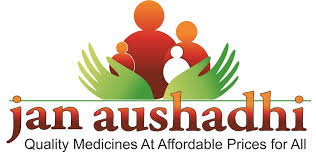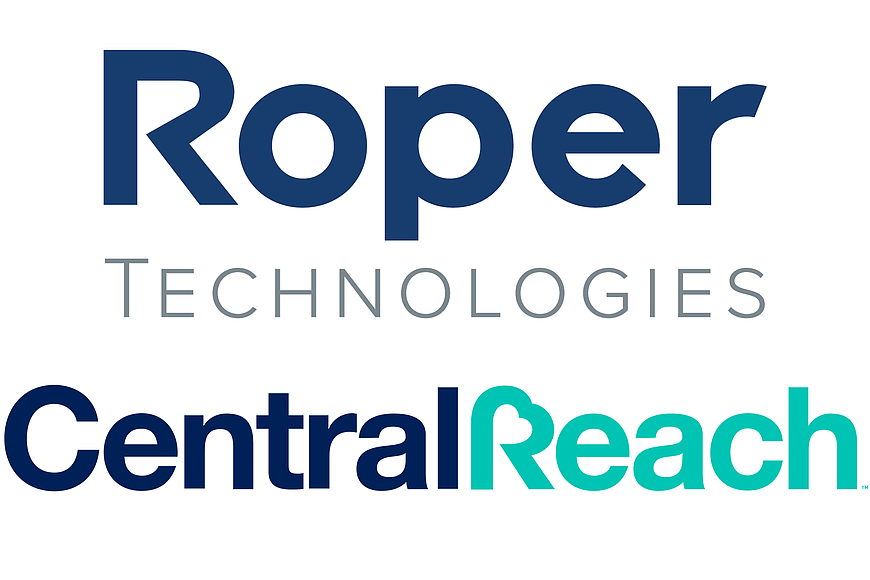In an era where rising healthcare costs have become a major concern, a silent revolution is reshaping the pharmaceutical landscape of India. With the sale of medicines through Jan Aushadhi outlets crossing the ₹1,255-crore mark by November 2024, the Pradhan Mantri Bhartiya Janaushadhi Pariyojana (PMBJP) has emerged as a ray of hope for millions. The initiative, backed by the Ministry of Chemicals and Fertilizers, is not just about numbers but about transforming healthcare accessibility and affordability for every Indian.
Under the current fiscal year of 2024-25, the Pharmaceuticals & Medical Devices Bureau of India (PMBI), operating under the Department of Pharmaceuticals, achieved a staggering ₹1,255 crore in sales by November. This milestone translates into savings of around ₹5,020 crore for citizens. These figures highlight the monumental impact Jan Aushadhi outlets are having on the lives of ordinary people, offering medicines at a fraction of the cost compared to branded drugs.
This achievement goes beyond numbers; it is a testament to the government’s commitment to providing quality healthcare at an affordable price. The initiative is reducing the financial burden on families while ensuring access to essential medicines across the country.
One of the key highlights of 2024 has been the signing of several Memoranda of Understanding (MoUs) with Central Armed Police Forces (CAPFs), the National Security Guard (NSG), and Assam Rifles (AR). These agreements aim to extend the reach of Jan Aushadhi medicines to hospitals operated by these forces, ensuring that even personnel stationed in remote and challenging terrains have access to affordable healthcare solutions.
This strategic collaboration underscores the government’s holistic approach to healthcare, ensuring that no section of society is left behind. It is not merely about providing medicines but about building a robust and inclusive healthcare ecosystem.
The year also witnessed development with the opening of the first overseas Jan Aushadhi Kendra in Mauritius. This step marks India’s effort to take its affordable healthcare model to a global stage. Mauritius, with its strong ties to India, is an ideal starting point for this international expansion.
This milestone signifies the potential of India’s pharmaceutical sector to make a global impact by offering cost-effective healthcare solutions. It also sets a precedent for other countries to adopt similar models to address their healthcare challenges.
In addition to expanding access to affordable medicines, the Department of Pharmaceuticals launched a scheme during the current fiscal year to strengthen the pharmaceutical industry. With a financial outlay of ₹500 crore, this scheme focuses on enhancing the productivity and quality of existing pharmaceutical clusters and MSMEs across the country.
This initiative is vital for boosting the capabilities of small and medium-sized enterprises (SMEs) in the pharmaceutical sector. By providing the necessary support, the government aims to elevate India’s position as a global pharmaceutical hub while ensuring that the benefits trickle down to the grassroots level.
The Pradhan Mantri Bhartiya Janaushadhi Pariyojana has not only made medicines affordable but has also instilled trust in generic drugs. For years, there has been a misconception that expensive branded medicines are superior to generics. PMBJP has debunked this myth by providing high-quality medicines at up to 90% lower prices, proving that affordability does not come at the cost of quality.
The real success of Jan Aushadhi lies in its impact on ordinary citizens. From saving the life of a heart patient in a remote village to ensuring that a diabetic patient in an urban slum can afford insulin, the initiative has touched countless lives. Each sale is not just a transaction but a story of hope and empowerment.
Take, for instance, the story of Ramesh, a daily wage labourer from Uttar Pradesh. Suffering from chronic hypertension, he struggled to afford the medication prescribed to him. However, the introduction of a Jan Aushadhi Kendra in his locality has allowed him to manage his condition without financial strain. Such stories are a testament to the transformative power of accessible healthcare.
While the progress is commendable, challenges remain. Ensuring consistent supply, addressing scepticism around generic medicines, and expanding the network of Jan Aushadhi Kendras to cover every corner of the country are some hurdles that need to be addressed.
Moreover, public awareness campaigns are crucial to educate citizens about the benefits of Jan Aushadhi medicines. Dispelling myths and building trust in generic drugs is a long-term process that requires sustained effort.
The success of the Jan Aushadhi initiative is a clear indication that India is on the right path toward achieving universal healthcare. By addressing the twin challenges of affordability and accessibility, the initiative is setting a benchmark for other countries to emulate.
As the government continues to invest in healthcare infrastructure, forge strategic collaborations, and empower MSMEs, the dream of a healthy and prosperous India seems closer than ever. The ₹1,255 crore milestone is not just a number; it is a symbol of hope, resilience, and the promise of a brighter future for millions.
The Jan Aushadhi initiative is more than a healthcare program; it is a movement that embodies the spirit of inclusive growth. By breaking down financial barriers to essential medicines, it is ensuring that healthcare is not a privilege but a fundamental right for every Indian.
As the journey continues, the vision of a healthy India powered by affordable healthcare is becoming a reality. The story of Jan Aushadhi is a story of empowerment, proving that with the right policies and initiatives, even the most daunting challenges can be overcome
http://www.21stcenturyhospitalgownplus.com/
http://www.elite-factory-15.fr/
http://www.gba-amateurboxen.de/
http://www.kita-strausberg.de/
http://sonispicehelensburgh.co.uk/
http://curryzonecardonald.co.uk/
http://cinnamon-edinburgh.co.uk/
http://www.bombaydelipaisley.com/
http://pizzanightclydebank.co.uk/
http://www.pizzanightclydebank.com/
http://gyros2goclydebank.co.uk/
http://grillicious-glasgow.co.uk/
http://www.abdulstakeaway.com/
http://www.freddiesfoodclub.com/
http://cinnamonportobello.co.uk/
http://www.romafishnchips.com/
http://bombaydelipaisley.co.uk/
http://yaraloungerestaurant.co.uk/
http://tasteofchinacoatbridge.co.uk/
http://www.memoriesofindiagorebridge.com/
http://memoriesofindiaeh23.co.uk/
http://freddiesknightswood.co.uk/
http://gyros2gohardgate.co.uk/
http://www.strausseeschwimmen.de/
http://www.janstanislawwojciechowski.pl/
http://london-takeaways.co.uk/
http://shahimanziledinburgh.co.uk/
http://freddiesfoodclub.co.uk/
http://www.spicestakeaway.com/
http://www.mexita-paisley.com/
http://pandahouseglasgow.co.uk/
http://www.zum-alten-steuerhaus.de/
http://www.oberstufenzentrum-mol.org/
http://www.morsteins-neuenhagen.de/
http://www.maerkische-jugendweihe.de/
http://www.planungsbuero-henschel.de/
http://www.hertzelektronik.de/
http://www.militaergefaengnisschwedt.de/
http://www.fahrrad-naumann.de/
http://www.hondamoto-villemomble.com/
http://www.hondamoto-royan.com/
http://www.hondamoto-ajaccio.com/
http://www.download-skycs.com/
http://www.sisakoskameleon.hu/
http://www.hondamoto-montauban.com/
http://www.hondamoto-chalonsursaone.com/
http://www.hondamoto-champignysurmarne.com/
http://www.hondamoto-asnieres.com/
http://www.pasquier-motos.com/
http://www.evacollegeofayurved.com/
http://www.compro-oro-italia.it/
http://www.hondamoto-saintmaximin.com/
http://www.hoangminhceramics.com/
http://www.pasiekaambrozja.pl/
http://www.xn--b1alildct.xn--p1ai/
http://www.ferreteriaflorencia.com/
http://www.thevichotelkisumu.com/
http://www.nexuscollection.com/
http://www.moitruongminhhuy.com/
http://www.ozkayalarpaslanmaz.com/
http://www.munkagepmonitor.hu/
http://www.my247webhosting.com/
http://www.thesmokingribs.com/
http://www.healthlabgrosseto.it/
http://www.ochranakaroserie.cz/
http://www.phukiendonginox.com/
http://www.meijersautomotive.nl/
http://www.kartaestudentit.al/
http://www.podlahyjihlavsko.cz/
http://www.hillhouseequestrian.com/
http://www.gradskapivnicacitadela.com/
http://www.capella-amadeus.de/
http://www.landfleischerei-auris.de/
http://www.faistesvacances.be/
http://www.autoservice-doernbrack.de/
http://www.tabakhaus-durek.de/
http://www.oldtimer-strausberg.de/
http://www.imexsocarauctions.com/
http://www.kaslikworkshop.com/
http://www.firefightercpr.com/
http://www.visuallearningsys.com/
http://www.hanksautowreckers.com/
http://www.impresospichardo.com/
http://www.philiphydraulics.net/
http://www.internationaldentalimplantassociation.com/
http://www.indywoodtalenthunt.com/
http://www.badicecreamgame.com/
http://www.riad-amarrakech.com/
http://www.centrodeformacioncanario.com/
http://www.socialdefender.com/
http://www.pepiniere-paravegetal.com/
http://www.reparertelephonearles.fr/
http://www.namsontrongdoi.com/
http://www.devipujakjivansathiseva.in/
http://www.laymissionhelpers.org/
http://www.vangiaphatdeco.com/
http://www.isscoachinglucknow.in/
http://www.hieuchuandoluong.com/
http://www.aurorabienesraices.com/
http://www.indianmoversassociation.com/
http://www.oztopraklarotomotiv.com/
http://moitruongnamnhat.com.vn/
http://www.dienmayvinhthuan.vn/
http://www.divadelkoproskoly.cz/
http://www.xn--12cfje1df4hdl7f1bf2evg9e.com/
http://www.westernirontrailers.com/
http://www.jazzaufildeloise.fr/
http://www.signcraft-drone.com/
http://www.realtyhighvision.com/
http://www.thermexscandinavia.nl/
http://imobiliariafelipe.com.br/
http://www.salon-lindenoase.de/
http://www.jezirka-zahrada.cz/
http://www.singhanialogistics.in/
http://www.der-pixelmischer.de/
http://www.hegermuehlen-grundschule.de/
http://www.radiologie-strausberg.de/
http://www.foto-studio-matte.de/
http://www.tables-multiplication.com/
http://www.rusztowania-belchatow.pl/
http://www.fishingandhuntingheaven.com/
http://www.orologiegioiellilameridiana.it/
http://www.rotarybresciaest.org/
http://www.jacarandaspain.com/
http://www.javieririberri.com/
http://www.huebelschraenzer.ch/
http://www.illinoiscreditunionjobs.com/
http://www.iznikdenizorganizasyon.com/
http://www.leasebackconcierge.com/
http://www.eoisantacoloma.org/
http://skullbasesurgery.co.uk/
http://www.immobilienplattensee.com/
http://www.germandailynews.com/
http://www.gptdcinternational.com/
http://www.forklifttrainingedmonton.com/
http://www.kashiwanakayama-cl.com/
http://www.thehousemediagroup.com/
http://www.pensiimaramures.ro/
http://www.michaelakokesova.cz/
http://www.viswabrahmanaeducationaltrust.com/
http://krone-aluminium.com.pl/
http://www.broadwaylumber.com/
http://www.ambulancesoccasions.com/
http://www.continuumintegrated.com/
http://www.joilifemarketing.com/
http://www.rotaseydisehir.com/

 As the journey continues, the vision of a healthy India powered by affordable healthcare is becoming a reality.
As the journey continues, the vision of a healthy India powered by affordable healthcare is becoming a reality.





.jpeg)
.jpeg)
.jpeg)












.jpeg)

.jpeg)
.jpeg)
.jpeg)

.jpeg)
.jpeg)
.jpeg)
_(1).jpeg)

_(1)_(1)_(1).jpeg)
.jpeg)
.jpeg)
.jpeg)






